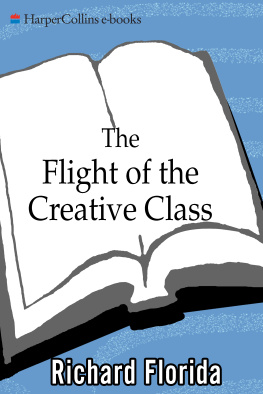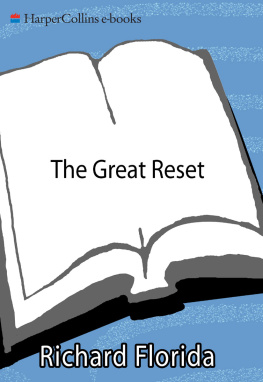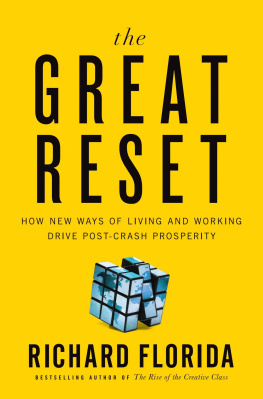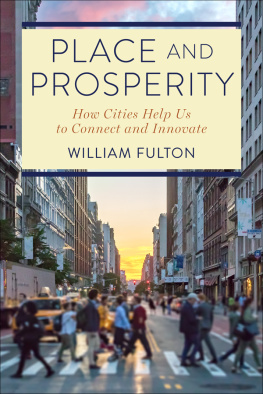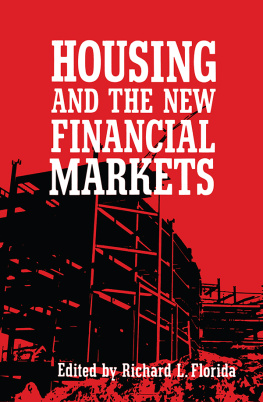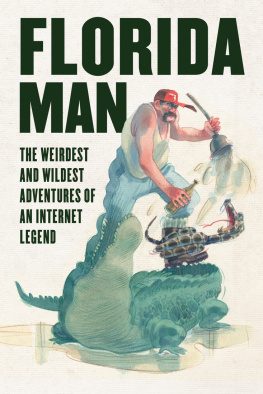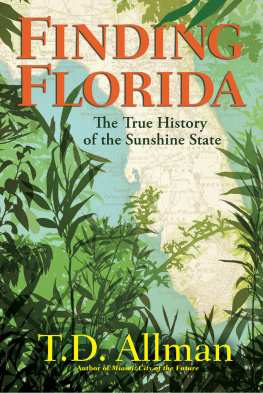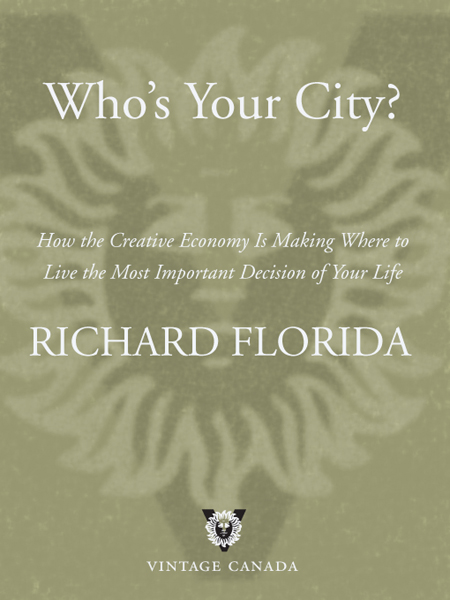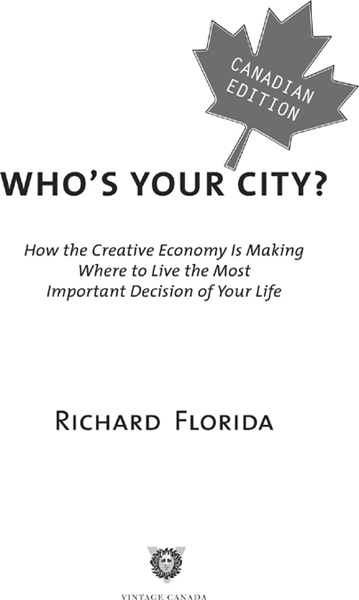Richard Florida - Whos Your City?: How the Creative Economy Is Making Where to Live the Most Important Decision of Your Life
Here you can read online Richard Florida - Whos Your City?: How the Creative Economy Is Making Where to Live the Most Important Decision of Your Life full text of the book (entire story) in english for free. Download pdf and epub, get meaning, cover and reviews about this ebook. year: 2010, publisher: Vintage Canada, genre: Politics. Description of the work, (preface) as well as reviews are available. Best literature library LitArk.com created for fans of good reading and offers a wide selection of genres:
Romance novel
Science fiction
Adventure
Detective
Science
History
Home and family
Prose
Art
Politics
Computer
Non-fiction
Religion
Business
Children
Humor
Choose a favorite category and find really read worthwhile books. Enjoy immersion in the world of imagination, feel the emotions of the characters or learn something new for yourself, make an fascinating discovery.

- Book:Whos Your City?: How the Creative Economy Is Making Where to Live the Most Important Decision of Your Life
- Author:
- Publisher:Vintage Canada
- Genre:
- Year:2010
- Rating:5 / 5
- Favourites:Add to favourites
- Your mark:
Whos Your City?: How the Creative Economy Is Making Where to Live the Most Important Decision of Your Life: summary, description and annotation
We offer to read an annotation, description, summary or preface (depends on what the author of the book "Whos Your City?: How the Creative Economy Is Making Where to Live the Most Important Decision of Your Life" wrote himself). If you haven't found the necessary information about the book — write in the comments, we will try to find it.
All places are not created equal.
In this groundbreaking book, Richard Florida shows that where we live is increasingly a crucial factor in our lives, one that fundamentally affects our professional and personal prospects. As well as explaining why place matters now more than ever, Whos Your City? provides indispensable tools to help you choose the right place for you.
Its a clich of the information age that globalization has made place irrelevant, that one can telecommute as effectively from New Zealand as New York. But its not true, Richard Florida argues, relying on twenty years of innovative research in urban studies, creativity, and demographic trends. In fact, as new units of economic growth called mega-regions become increasingly specialized, the world is becoming more and more spiky divided between flourishing clusters of talent, education and competitiveness, and moribund valleys.
All these places have personalities, Richard Florida explains in the second half of Whos Your City?, and happiness depends on finding the city in which you can balance your personal and career goals to thrive. More people than ever before now have the opportunity to choose where to live, but at different points in our lives we need different kinds of places, he points out what a couple of recent college graduates want from their city isnt necessarily what a retiree is looking for. You have to find the place that suits you best: a boho-burb neighbourhood isnt likely to be the best fit for patio man.
So, for the first time, Whos Your City? ranks cities by their fitness for various life stages, rating the best places for singles, young families, and empty nesters. It summarizes the key factors that make place matter to different kinds of people, from professional opportunities to the closeness of family to how well it matches their lifestyle, and provides an in-depth series of steps to help you choose the right place wisely.
Sparkling with Richard Floridas signature intellectual originality, Whos Your City? moves from insights to studies to personal anecdotes, from a startling Singles Map of the United States to surprising data on the difference aesthetics makes to peoples sense of place. A perceptive and transformative book, it is both a brilliant exploration of the fundamental importance of place and an essential guide to making what may be the most important decision of your life.
Richard Florida: author's other books
Who wrote Whos Your City?: How the Creative Economy Is Making Where to Live the Most Important Decision of Your Life? Find out the surname, the name of the author of the book and a list of all author's works by series.

